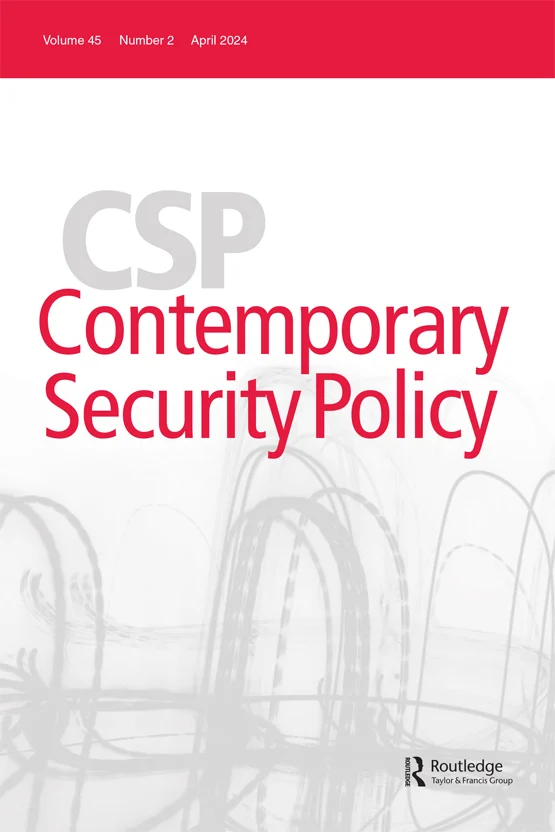Redefining deterrence in cyberspace: Private sector contribution to national strategies of cyber deterrence
IF 5
1区 社会学
Q1 INTERNATIONAL RELATIONS
引用次数: 5
Abstract
ABSTRACT This article explores the nature and the desirability of private sector contribution to national strategies of cyber deterrence. The article starts by developing a variation of the concept of cyber deterrence, called RCDC deterrence, which is simultaneously restrictive, comprehensive, dynamic, and complemental. Second, it applies RCDC deterrence to identify and analyze specific areas of cyber deterrence that can benefit the most from private sector contribution. Third, the article cautions about the potential security, legal, and moral issues that could arise from such private contributions. Instead of offering definitive answers on these complex issues, the article ends by suggesting avenues for further research. The ultimate objective is to assist decision-makers in designing policies and regulations aimed at maximizing the benefits of public–private cooperation in cyber deterrence while mitigating its potential downsides.重新定义网络空间威慑:私营部门对国家网络威慑战略的贡献
本文探讨了私营部门对国家网络威慑战略贡献的性质和可取性。本文首先发展了网络威慑概念的一种变体,称为RCDC威慑,它同时具有限制性、综合性、动态性和互补性。其次,它应用RCDC威慑来识别和分析网络威慑的具体领域,这些领域可以从私营部门的贡献中获益最多。第三,文章对此类私人捐款可能引发的潜在安全、法律和道德问题提出了警告。文章没有对这些复杂的问题给出明确的答案,而是提出了进一步研究的途径。最终目标是协助决策者制定政策和法规,以最大限度地提高公私合作在网络威慑中的效益,同时减少其潜在的负面影响。
本文章由计算机程序翻译,如有差异,请以英文原文为准。
求助全文
约1分钟内获得全文
求助全文
来源期刊

Contemporary Security Policy
Multiple-
CiteScore
14.60
自引率
6.80%
发文量
22
期刊介绍:
One of the oldest peer-reviewed journals in international conflict and security, Contemporary Security Policy promotes theoretically-based research on policy problems of armed conflict, intervention and conflict resolution. Since it first appeared in 1980, CSP has established its unique place as a meeting ground for research at the nexus of theory and policy.
Spanning the gap between academic and policy approaches, CSP offers policy analysts a place to pursue fundamental issues, and academic writers a venue for addressing policy. Major fields of concern include:
War and armed conflict
Peacekeeping
Conflict resolution
Arms control and disarmament
Defense policy
Strategic culture
International institutions.
CSP is committed to a broad range of intellectual perspectives. Articles promote new analytical approaches, iconoclastic interpretations and previously overlooked perspectives. Its pages encourage novel contributions and outlooks, not particular methodologies or policy goals. Its geographical scope is worldwide and includes security challenges in Europe, Africa, the Middle-East and Asia. Authors are encouraged to examine established priorities in innovative ways and to apply traditional methods to new problems.
 求助内容:
求助内容: 应助结果提醒方式:
应助结果提醒方式:


